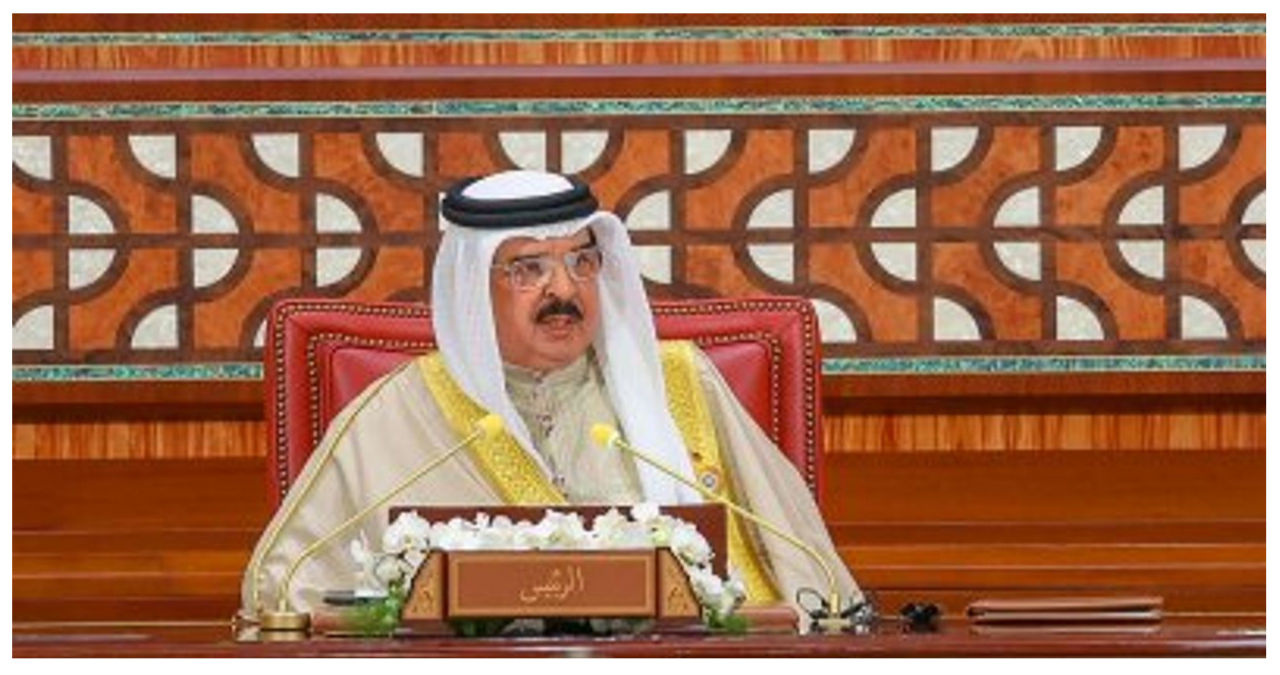Leaders at the 33rd Arab League summit strongly condemned the Israeli offensive in Gaza and emphasized the urgent need for the immediate withdrawal of forces from the region.
Bahrain’s capital, Manama, hosted this year’s summit, with King Hamad bin Isa Al Khalifa presiding over the event. The summit delved into various ongoing conflicts, including those in Libya, Sudan, Syria, Yemen, and the war in Gaza.
During last year’s summit, Saudi Crown Prince Mohammed bin Salman took the stage and delivered a powerful opening speech. In his address, he emphasized his country’s unwavering support for the establishment of a Palestinian state. Additionally, he called upon global leaders to put an end to the ongoing “Israeli aggression against Gaza.”
The crown prince emphasized the importance of safeguarding the Red Sea against Houthi rebel attacks on shipping vessels, as these actions have a significant impact on maritime commerce.
Hamad emphasized the importance of a unified Arab and international stance in resolving the Middle East conflict. He called for the complete recognition of the State of Palestine and its acceptance as a member of the United Nations.
The Arab League summit this year takes place amidst the ongoing Israeli war against Hamas in Gaza. The conflict was triggered by the terror group’s attack on October 7th, resulting in the death of over 1,170 individuals in southern Israel.
According to Gaza’s Health Ministry, the Israeli military operations have resulted in the deaths of at least 35,272 people and have also caused severe food shortages.
Thursday saw the presence of several notable figures, including Egyptian President Abdel Fattah al-Sisi, King Abdullah II of Jordan, Palestinian Authority President Mahmoud Abbas, Emir Tamim bin Hamad Al Thani of Qatar, and United Arab Emirates Vice President and ruler of Dubai Sheikh Mohammed bin Rashid Al Maktoum.
In his statement, Al-Sisi pointed out that Israel is evading attempts to establish a cease-fire with Hamas and is persistently attacking Rafah near the Gaza-Egypt border.
Israel was accused by him of using the Rafah border crossing to further tighten the siege on the Strip.
He emphasized that Egypt firmly opposes any attempts to displace or forcefully remove Palestinians from their land.
Syrian President Bashar al-Assad made a comeback at the summit, marking his second appearance this year. In 2011, the Arab League had suspended Syria’s membership due to the government’s harsh handling of Arab Spring demonstrators.
U.N. Secretary General Antonio Guterres was also in attendance. He emphasized the urgent need for a humanitarian cease-fire in Gaza, as well as unrestricted access for humanitarian aid. Additionally, he called for the swift and unconditional release of all hostages.
“This Gaza war has been the deadliest conflict in my time as Secretary-General, affecting civilians, aid workers, journalists, and even our own U.N. colleagues,” he expressed, highlighting its unprecedented speed and scale.
The second Arab League summit took place on Thursday following the start of the Israeli campaign in Gaza.
Just one month after the war broke out, an emergency summit was held in Riyadh. During this summit, leaders strongly rejected Israel’s assertions of self-defense and urged the U.N. Security Council to pass a definitive and enforceable resolution to put an end to the operation.
The summit on Thursday also addressed the areas of joint Arab action, including politics, economy, society, culture, media, and security.
Participants at the summit also agreed upon the “Bahrain Declaration,” which was put forward on Tuesday. The declaration proposes the organization of a U.N.-supported international peace conference in Manama to address the Israeli-Palestinian conflict.
During the discussion, participants also explored the possibility of reactivating the Arab Peace Initiative, an initiative that was initially proposed by Saudi Arabia and adopted at the league summit in 2002.
The initiative suggests that Israel establishes full diplomatic relations with Arab states and grants them recognition. In return, Israel would withdraw its forces from Palestinian territories that were occupied in 1967. Additionally, the initiative calls for the creation of a Palestinian state, based on the borders that existed in 1967.



